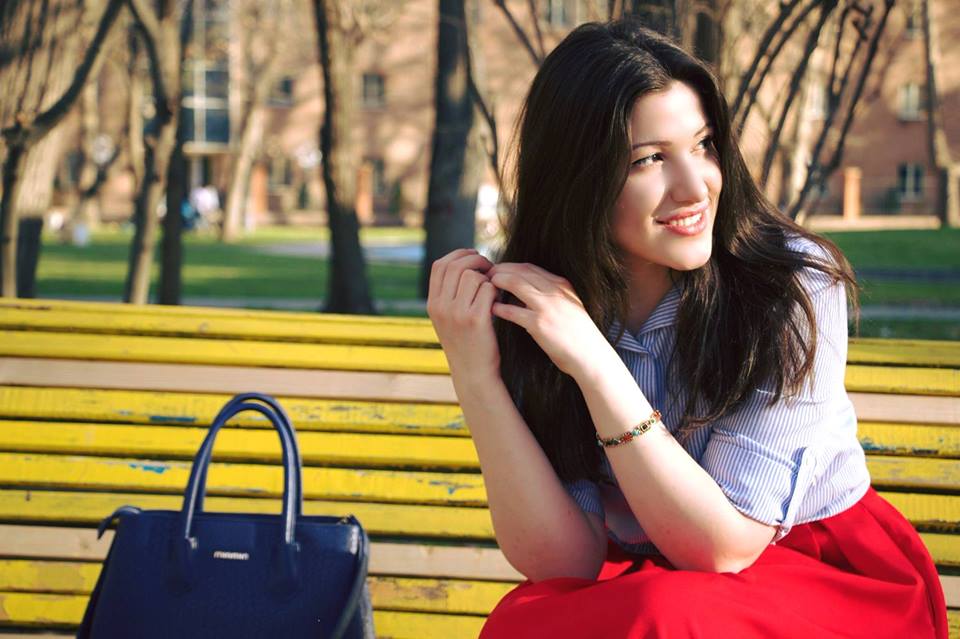A cold winter morning, Tuesday, nine o’clock. Having quickly surmounted the long carpet of many stairs leading to the American University of Armenia, I, breathless but on time, sat at the end of the first row. My eyes were fixed on the blackboard, where written in big letters were the words “Intro to Journalism.” I was looking at the writing and sinking into the cold ocean of my doubts. Will a good journalist and media expert come out of a family of skilled engineers? And so there I was sitting at the end of the first row, listening to and getting lost in the heated class discussions. Much like the flight of an eagle, the class quickly flew by. I came out of the classroom lost in thought, and my feet carried me to the soft beige sofas across from the classroom that looked toward the huge windows. I sprawled out on one of the sofas. My gaze froze on the white image of Ararat, which opened up above an awakened Yerevan. That’s when I realized I had chosen the wrong path.
In my warm household I often heard engineering terms, which though had become familiar to my ears for a hundred years, remained, nonetheless, incomprehensible. I accepted that engineering was not for my mind and tried to find from the field of diverse professions that which was mine. I was the pediatrician and the teacher. I was the translator and the linguist. But definitely I wasn’t the media. I thought: Who is the media? The journalist. The black cat, which when it crosses your path, you must circumvent it or change your path. Ultimately, I decided, applied, and became a student of the American University of Armenia’s Faculty of English and Communications with the bright idea that I’m going to go to the translation department and not to communications. But of course, you don’t one hundred percent know what fate will serve up on its tray tomorrow.
For example, it served me with mandatory media and journalism classes. No matter how much I tried to stay away from the black cat, the day came when I was forced not to circumvent it and not to change my path, but to continue my steps clearly forward. I didn’t take risks. I was cowardly and full of stereotypes. But when the nerves on your hands are enjoying the black cat’s soft fur and you look into its big green eyes, you are filled with tenderness.
I became a fan of the media. I myself didn’t understand how or why. But I remember when. When Fox News, the BBC, Hetq.am, Civilnet, and a number of other media outlets began to show up on my list of websites in my computer’s Google Chrome. When my interest forced me to study examples of photojournalism of different times. When I began to turn my attention to writing style. I would read, research, write, get angry, rip, get excited, write again, and finally be happy.
I became informed. I became another. I understood that the harvest of today’s media and journalism tomorrow will be a story of yesterday. I understood as well that the stylistic errors I made in my second piece will be corrected, forgiven, and explained by only my instructor, but not the hundreds of readers. I understood that being the media is a risky responsibility.
I am the media when I am a skilled writer, a good psychologist, an informed citizen, a teacher responsible for tomorrow, an inquisitive researcher — all together. I am the media when I love to the level of insanity being all of this and feel myself to be the media.
A cold winter morning, Tuesday, 10:27 a.m. Sprawled on the third-floor sofas of the American University of Armenia’s Paramaz Avedisian Building, I understood that I love the media to the level of going crazy. I understood that a good journalist and media expert can come out of a family of skilled engineers. I understood that the media can be a tool for unbelievable changes.
Luiza Vardanyan
Third-year student, Faculty of English and Communications, AUA
This piece was awarded the third-place prize at the 2017 I Am the Media contest






